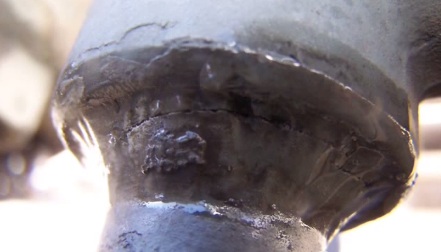Refineries, PetroChem Plants
Uptime is critical, but not easy to achieve.
Specialized engineering skills are needed to design piping systems that avoid vibration-induced failures. Rotating machinery also requires advanced engineering analysis to avoid pulsations, resonance, and other vibration problems.
These engineering services apply to greenfield facilities and also when modifying an existing compressor, pump, or the piping system.
SMALL BORE FAILURES AFFECT PIPING INTEGRITY

This video illustrates one of the most common integrity failures facing refinery owners. Watch
Wood has unique capabilities to identify and resolve these issues.
SBC Assessment
Example: Specialty Gases Create Pulsation Challenges

This article illustrates the challenges involved in accurately designing compressors to handle ethane and ethylene gases. Wood has the deep experience with refinery applications, including surge control, transients, compressor modifications, and troubleshooting. READ MORE (pdf)
Webinar: Piping and tubing vibration anomaly mgmt

New methods to find and track vibration threats in small-bore piping and tubing
View MoreWebinar: Downstream performance optimization

How to get the most out of your downstream facility
View MoreWebinar: Small bore…Big problem

Learn how to better manage piping vibration and fatigue threats
View MorePiping Vibration and Integrity Assessment

Piping vibration analysis per EI 2008 Guidelines for the avoidance of vibration-induced fatigue failure (AVIFF).
View MorePulsation & Mechanical Analysis: Reciprocating Compressor

Pulsation study, mechanical review and frequency avoidance analysis, forced response analysis (when required); per API 618, API 688 and GMRC High-Speed Compressor Guideline.
View MoreTroubleshooting, Root Cause Analysis (RCA)

Advanced vibration analysis including pulsation, resonance, stress and transients
View MoreWebinar: Shake, rattle and grow I (2022 update)
.jpg)
Pipe stress and vibration design – new piping stress modeling techniques for more accurate designs
View MorePipe Clamps, incl. DamperX™ and ThermaGlide™

Field-proven designs to control vibration and allow thermal growth in piping systems
View MoreExamples of Piping Vibration (Video)

Small-bore and mainline piping vibration: a common integrity issue for owners.
View MoreVeridian VS

Vibration screening can now be done quickly and efficiently with significant cost savings for operators.
View More


_Vibration_Analysis_-_grid.jpg)





